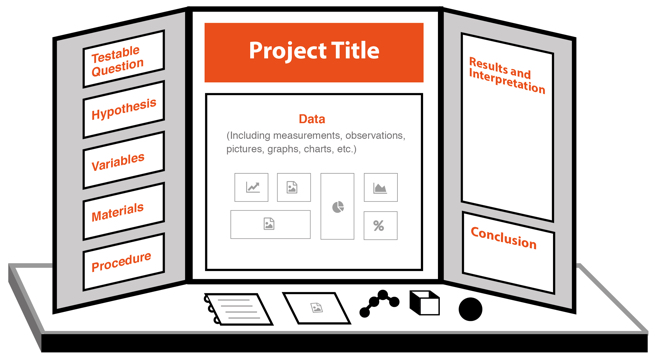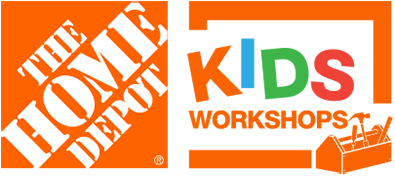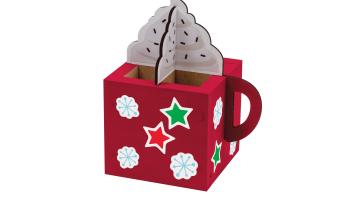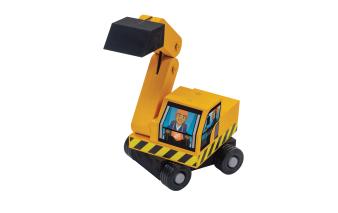Presentation
Posters and digital presentations both tell the story of the student’s investigation or invention. It chronicles their hard work, documents real data, and breaks down concepts into basics that anyone who visits their display at the fair or event can understand.

- 1Left Panel
This is where the story of the experiment or investigation should be chronicled in precise steps. Typically, this panel includes your testable question, hypothesis, variables, materials, and procedure.
Expert tip! Learn how to edit your text down to the essentials. Through creative use of color, type, and graphic elements, you can make your ideas pop and bring your project to life. Space elements evenly across your layout, to achieve a balanced, consistent look.
- 2Main Panel
Treat the center panel of the tri-fold board as center stage. Come up with a catchy title and display it prominently. The title should be the largest text on the board. Don’t be afraid to make it big and bold!
Expert tip! Label all graphs, charts, and tables. On graphs, make sure you label the x and y axes. Be sure every photo has a caption beneath it. Write descriptive captions for photos.
- 3Right Panel
This is typically where your results and conclusion are displayed. You may display your results using tables, charts, graphs, and pictures. Use a ruler, yardstick or T-square to measure and cut evenly.
Expert tip! Proofread and spellcheck all text before sticking it on your display board. Use black or dark colors for type and make the type large enough to read from four feet away. As a general rule, use 24 pt. type for headings, 16 pt. type for text blocks. Use subheads and bullet points rather than long paragraphs of dense text.
- 4Artifacts
May include models, working models, natural objects, an invention, experimental results, or equipment used.




